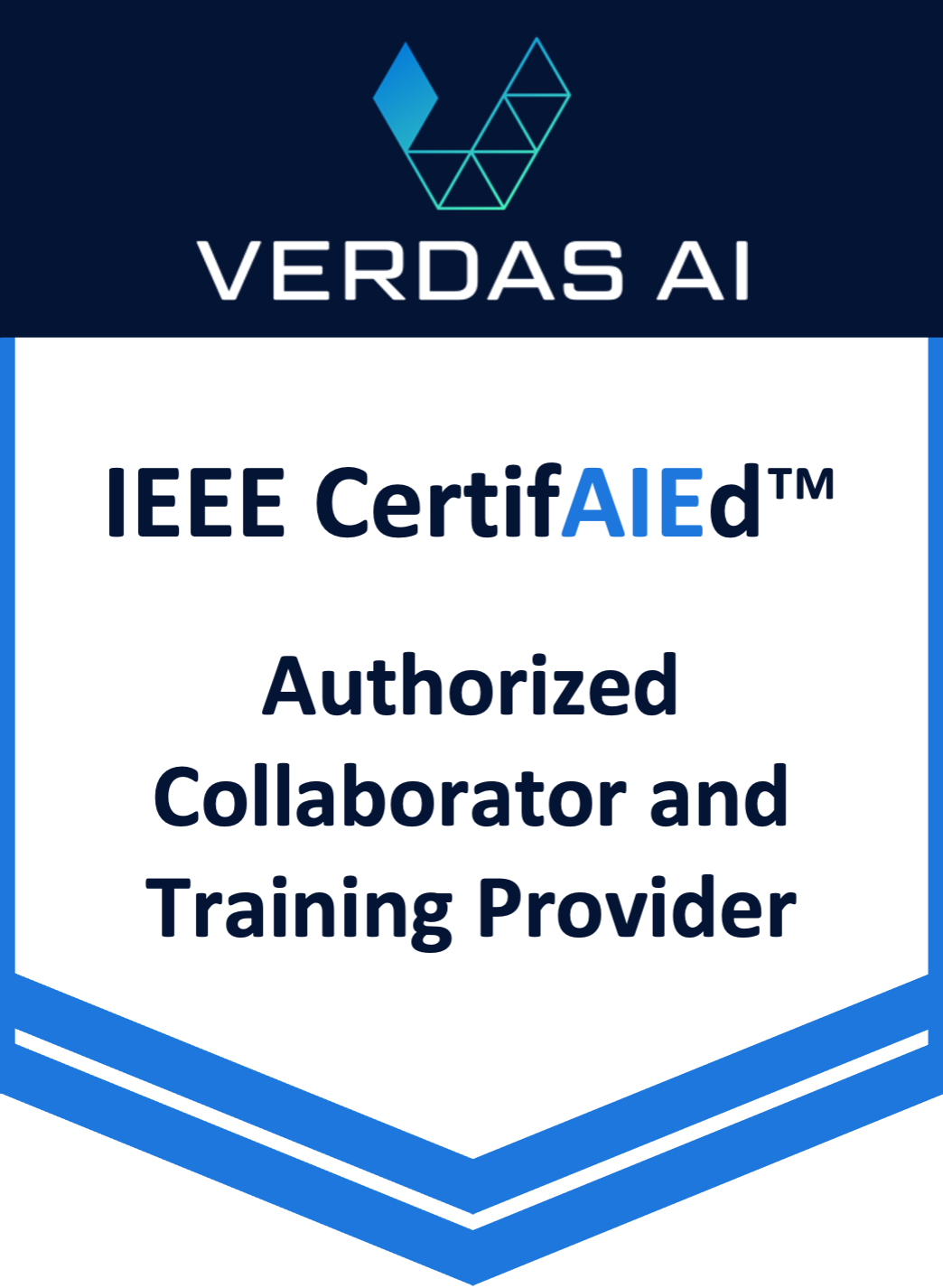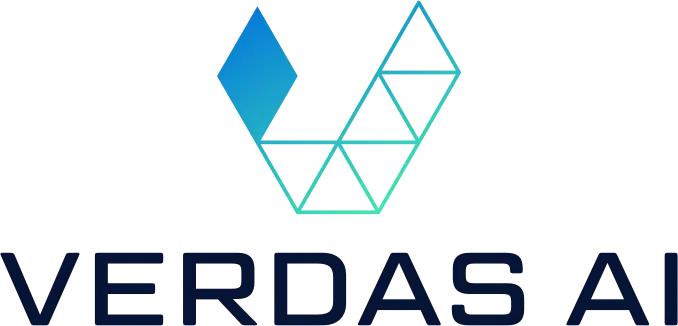Academy
Discover the future today!
At Verdas, we believe in harnessing the true potential of Artificial Intelligence (AI). Embark on a transformative journey with us, exploring the intricacies of AI from its foundational concepts to its ethical implications. Whether you’re a novice or an expert, we have something for everyone!

Courses

IEEE CertifAIEd ™ Assessor Training
Elevating AI Ethics Through Comprehensive Certification.
- Course Overview: Deepen your knowledge of social responsibility in autonomous intelligent systems and the IEEE CertifAIEd™ approach. This comprehensive course covers everything from the basics of AI Ethics to the specific criteria for IEEE certification. Engage with a community of AI Ethics experts and pave your path to becoming an IEEE CertifAIEd Authorized Assessor.
- Who Should Attend: Compliance Officers, AI Engineers, Data Protection Managers, Management Consultants, and other professionals eager to deepen their understanding of AI ethics and certification.
Working Models for AI
Turning theory into practice.
- Course Overview: A deep dive into AI models and algorithms. Understand their design, execution, and application across diverse sectors.
Introduction to AI
Unlock the world of Artificial Intelligence.
- Course Overview: Dive into the basics of AI, learn about its historical background, foundational theories, and the incredible innovations it’s brought to life.
Introduction to AI Standards & Regulation
From the basics to the EU AI Act.
- Course overview: The training covers a wide range of topics from AI applications and standards, ethics, data protection, existing legal frameworks to an insight into the current status of specific AI-related regulations such as the EU AI Act. Please note that the training will be conducted in German.
Introduction to Responsible AI
Pioneering Responsible Innovation in the Digital Age.
- Course Overview: Equip yourself with the foundational knowledge and practical skills necessary to navigate the ethical and societal implications of AI. A deep dive to ethical principles of AI to promote responsible innovation.
Designing AI with ISO/IEC/IEEE 24748-7000:2022
Ensuring Global AI Standards for Excellence.
- Course Overview: Equip yourself with the foundational knowledge and practical skills necessary to navigate the ethical and societal implications of AI. A deep dive to ethical principles of AI to promote responsible innovation.
Leadership for AI
Leading the next generation of AI-driven enterprises.
- Course Overview: Learn how to integrate AI into your business strategy, foster innovation, and drive growth while being mindful of ethical and regulatory considerations. Who Should Attend: Business leaders, managers, and professionals who aim to champion AI initiatives within their organizations.
Identifying AI Use Cases
Unlocking AI potential: Your path to transformation.
- Course Overview: Equip yourself with the knowledge and skills required to effectively identify and prioritize AI use cases within your organization.
Introduction to Innovation Management
Mastering change with confidence.
- Course Overview: Learn key skills to managing innovation and change projects.
Introduction to AI Quality
Elevate Excellence in AI: Where Quality Meets Success.
- Course Overview: Deliver AI-driven solutions that meet rigorous quality standards and drive successful outcomes.
Prompt Engineering Training
Elevate AI Communication: Crafting Prompts for Precision and Power.
- Course Overview: Master the art of crafting effective and precise prompts for various natural language processing applications. Delve into techniques to optimize model performance, extract desired information, and enhance the overall usability of AI systems.
AI for Marketing
Elevate Your Marketing Game with AI.
- Course Overview: Master the art of crafting effective and precise prompts for various natural language processing applications. Delve into techniques to optimize model performance, extract desired information, and enhance the overall usability of AI systems.
AI for Startups
AI-Powered Startups: From Idea to Impact.
- Course Overview: Grasp the knowledge and acquire the tools needed to harness the power of AI for business growth and innovation. Strategically integrate AI into your products and services, optimize operations, and gain a competitive edge in the dynamic startup ecosystem.
Introduction to Explainable AI
Shedding Light on AI’s Inner Workings.
- Course Overview: Explore the world of Explainable AI, where decisions made by AI models come with justifiable reasoning. This course delves into the essence of AI’s rationale, highlighting real-world applications like self-driving cars and emphasizing the importance of transparent decision-making in AI systems.
Why Choose Us?
Expert Trainers
Ensure that your AI systems are compliant with the latest regulations and standards, mitigating the risk of non-compliance penalties and reputational damage.
Enhanced AI Quality
Benefit from robust AI models that deliver accurate, reliable, and consistent outcomes, helping your organization make data-driven decisions with confidence.
Competitive Advantage
By aligning your AI systems with industry standards and best practices, you can differentiate your organization from competitors and position yourself as a leader in the AI space.

